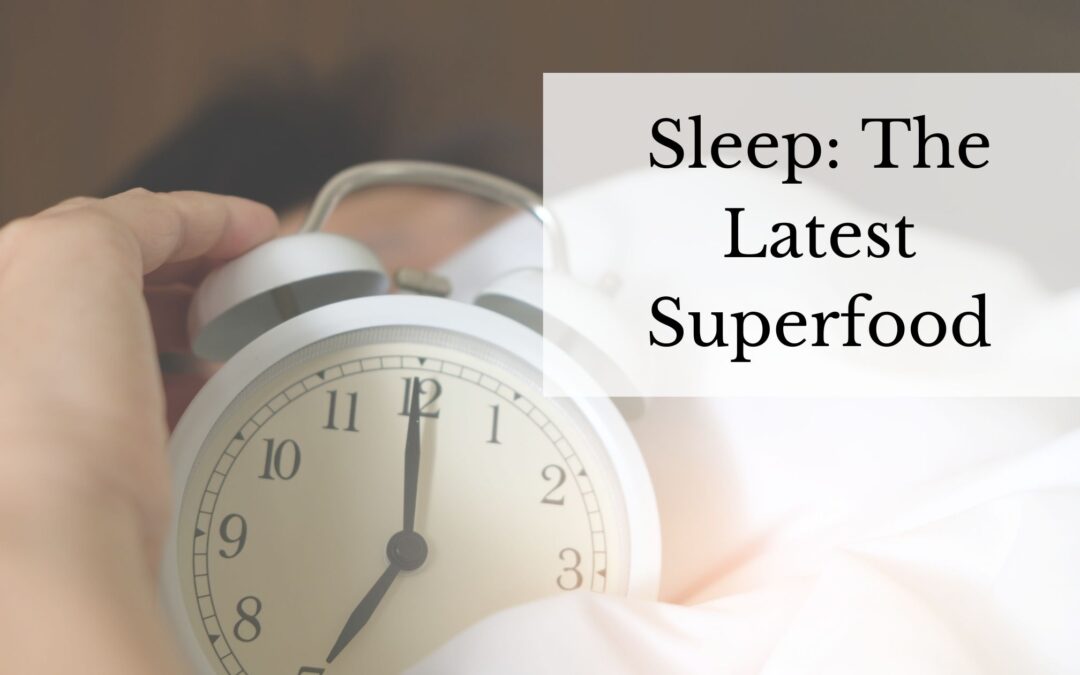As published in My Swiss Story on November 27, 2020.
“I’ll sleep when I’m dead” those laughable off the cuff comments we threw around with pride back in the day. When we were younger, before we had kids or endless commitments aka life. Now we would give anything for a good night’s sleep, but yet most of us don’t consider it a priority.
The new science of sleep emerging shines a light on why sleep is so imperative to our health and wellbeing regardless of what stage of life we are in.
Just ask any sleep deprived mother, what she really wants for Christmas this year and 9 times out of 10 it will be to simply sleep through the night, uninterrupted. Or better yet a couple days of blissful rest, sleep and relaxation. Is that too much to ask?
In the throws of surviving motherhood, we find ourselves not even coming close to the recommended hours of sleep, even after our kids have grown out of the nighttime waking phase. But the long term effects equate to struggles with not only our sanity, but our weight, our immune system and our emotional temperament.

The truth is sleep impacts almost every aspect of our lives. While we sleep the brain is doing a myriad of important functions, least of which is the ability to learn, memorize and make logical decisions and choices.
And it is not just mental fatigue that occurs when we don’t get enough sleep. Studies have shown that lack of sleep can lead to a long list of physical ailments such as diabetes, cancer, cardiovascular disease and even Alzheimers.
As a health coach, it is one of the first questions I ask new clients – How is your sleep? For many focusing on nutrition and exercise is held in higher regard than sleep. But the truth is if you aren’t getting proper sleep you may as well be smoking a pack of cigarettes, because the diet and nutrition aren’t the only factor at play when it comes to your health.
Less sleep = more sickness
Research shows that people who consistently miss out on quality sleep, are not only more likely to get sick after being exposed to a virus, but their bodies take longer to recover once they fall ill.
That’s becasue complicated systems are at play while we sleep. Ones that strengthen our immune system, fight off infection and ward off all manner of sickness.
Research has shown that individuals sleeping 6 hours or less a night were 4 times more likely to catch a cold compared to those who were logging 7+ hours of sleep. And that sleep deprived individuals were 11.5 times more likely to be left unprotected by a vaccine than people who were getting 7+ hours of sleep.
Proper sleep is a key way to ensure your body is armed and ready to defend against what comes its way.

Less Sleep = More Weight
While we sleep the body is regulating the balance of insulin and glucose which regulates our appetite, and helping us maintain a healthy weight. In addition, sleep helps balance the delicate microbiome in your gut which so much of our health is dependent on .
Lack of sleep causes a swell of hormones that make you feel hungry and suppresses the hormone that signals your brain that you are full. Talk about a double whammy. We will make poor decisions after a bad nights sleep which means we go for the unhealthy options and also our hormones are telling us that we aren’t full as easily so we tend to eat more of the bad stuff.
So if you want to lose or maintain your ideal weight, sleep is critical
How to prioritize sleep?
- Establish a good Sleep Routine (ps it starts during the day)
Make sleep a priority just like you do exercise and nutrition. Make sure your bedroom is cool and dark. Use your bed only sleep and you know that other thing you do in bed. Avoid caffeine and sugar from mid-afternoon on. Avoid all screens for at least an hour before bedtime. Consider having some soothing tea like lavender, or chamomile.
- Listen to your body’s natural rhythm (don’t fight it)
Darkness signals your body to release melatonin and kick-starts the physiological process that promotes sleep. Exposure to natural daytime light first thing in the morning, signals the body to release melatonin when you need it earlier in the evening. If you force yourself to stay up past your natural circadian rhythm, you throw off your ability to get a good night’s sleep.
- Manage your stress levels
Stress is a vicious cycle because it impacts our hormones that regulate sleep and the less you sleep, the more you worry, and the more you worry, the harder it is to sleep. One way to manage worries is to get them out of your head before bedtime. Writing them down helps you take them out of your swirling brain and makes them more finite. Incorporate mindfulness exercises during the day such as reading, journaling, exercising meditation or gratitude that ultimately relieve stress and lead to better sleep.

4. Flip your mattress
Make sure you are sleeping on a good mattress. Older mattresses break down and become uneven, leaving you unsupported. Plus, they accumulate a tremendous amount of allergens each year, which can further disrupt sleep. Mattresses should be replaced every seven to ten years.
5. Take a siesta.
Humans are genetically proven to be afternoon nappers. Just ask anyone who has had to sit through a boring presentation after a big lunch. Cultures where afternoon naps are the norm, find they are four times more likely to reach the age of 90 than those that don’t nap. So take that power nap, just make sure you don’t sleep too long.
The bottomline is this – most of us strut around wearing our lack of sleep like a badge of honor, when really we should be asking why are we sabotaging our health. Love yourself enough to get the recommended 7-8 hours of sleep and reap the benefits of better mental and physical health.
If you would like more information on sleep check out “Why We Sleep” by Matthew Walker, a fascinating delve into the science of sleep and dreams.

